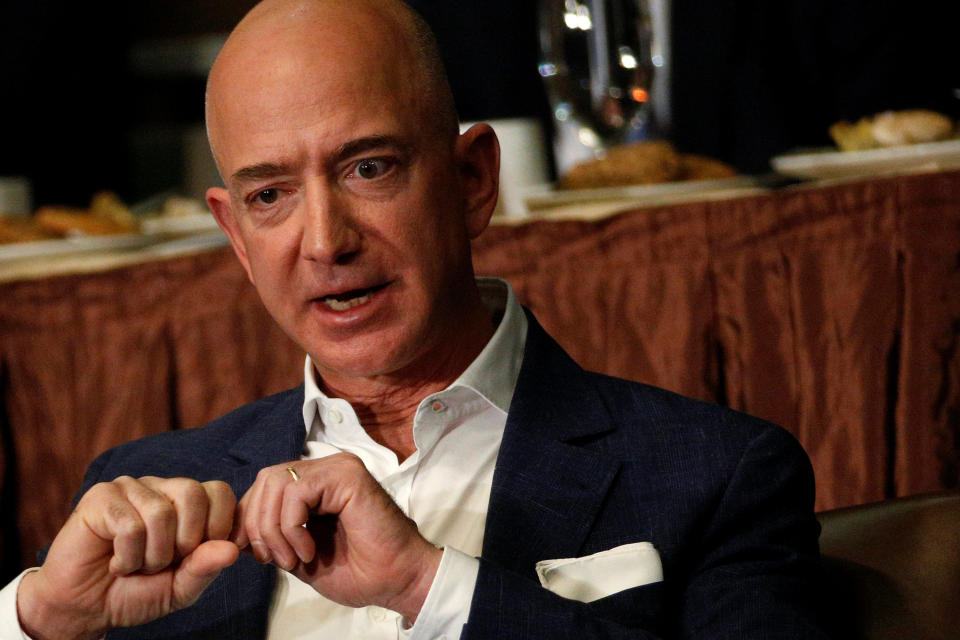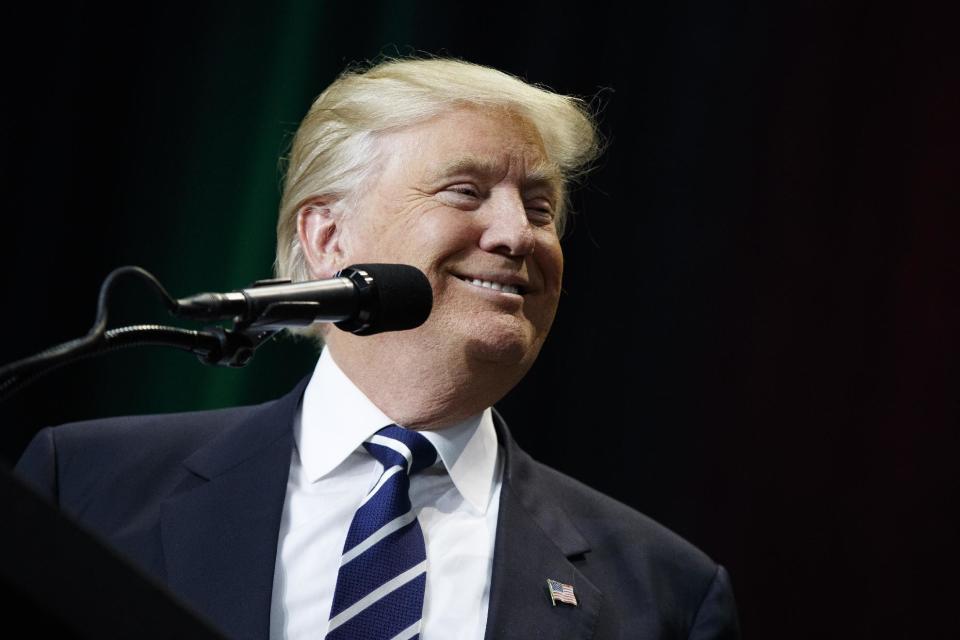What tech titans should say to Trump — and vice versa
What could be one of the more awkward sit-downs in recent US political history takes place in New York Wednesday afternoon: President-elect Donald Trump has invited the chief executives of some of America’s foremost tech companies to talk shop.
While none of these tech executives signed any #NeverTrump pledges, they also made no move to endorse him during the campaign and some expressed distinct unease over Trump’s views. That could lead to some edgy moments — so could the real policy differences between Trump and these tech leaders.
What they should say to Trump

The cast of characters includes Alphabet, Inc., (GOOG, GOOGL) CEO Larry Page and Chairman Eric Schmidt, Amazon (AMZN) founder Jeff Bezos, Apple (AAPL) CEO Tim Cook, Cisco (CSCO) CEO Chuck Robbins, Facebook (FB) COO Sheryl Sandberg, IBM (IBM) CEO Ginni Rometty, Intel (INTC) CEO Brian Krzanich, Microsoft (MSFT) CEO Satya Nadella, Oracle (ORCL) CEO Safra Catz and Tesla (TSLA) and SpaceX founder Elon Musk.
With no detailed agenda set beyond a broad focus on jobs—and with few concrete tech-policy goals announced by Trump—the summit attendees might as well start by telling Trump to his face why they still oppose some of the tech-related stances he took during the campaign.
No, Mr. President-Elect, they should say: You can’t order parts of the internet closed up when it was designed to route around such interruptions. No, you can’t demand that tech companies ship secure encryption that also supports back-door access to law-enforcement authorities.
These C-suite types could soften the last blow by noting that Democratic candidate Hillary Clinton waffled quite a bit about encryption, giving Trump a chance to look decisive on the issue now.
They should offer their assistance with cybersecurity in general. The recent history of hacks into both government and political organizations—some of which the CIA now thinks were done by the Russian government to hurt Trump’s opponent Hillary Clinton— shows the public sector needs the help.
At the same time, the tech execs ought to take the opportunity to say they will not help the government build any registries of religious or ethnic minorities—a task that some of their employees have already pledged to resist.
But I fear they won’t: When The Intercept asked Apple, Facebook, Google, IBM, Twitter (TWTR), and government contractors Booz Allen Hamilton, CGI and SRA International if they would refuse to develop a registry of Muslims, only Twitter said no. (The others didn’t respond or declined to comment on the issue.) And Twitter CEO Jack Dorsey has yet to be reported to be on the guest list for this get-together.
Dorsey would also be the best person to tell Trump directly that sharing conspiracy theories and punching down on his favorite social network have consequences.
What Trump should say to them

By most accounts, Trump wants to spend this afternoon talking about creating jobs. That’s a discussion we need—the tech industry has both created and destroyed jobs in vast numbers, and the numbers haven’t balanced out evenly in many cities and states across the US.
Trump not only can cut executives off when they start warbling on about “disruption” as a good in its own right, but he’d also probably enjoy it.
And after months of campaigning against shipping jobs overseas, Trump also has the standing to ask when the last time any of these companies didn’t have outsourcing manufacturing as a default setting.
(Yes, Trump’s own businesses have done the same thing, but an inconsistency between his words and deeds hasn’t quieted Trump before; he might as well make the most of it.)
Amazon’s Bezos may get some particularly direct questioning, and not just because he owns The Washington Post. Amazon initiatives like the no-cashiers Amazon Go retail prototype and Prime Air drone delivery of packages suggest a particularly intense focus on getting human labor out of the loop.
Tech executives do have good stories to tell about generating employment and what the government can do help. For instance, IBM’s Rometty wrote in a USA Today op-ed that she will urge Trump to put more government funding into retraining workers for the skilled jobs her company has trouble filling.
Given Trump’s habit of denouncing environmental regulations, the jobs part of the discussion looks to be their best shot to talk up the green-energy opportunities they’ve created by trying to drive data-center costs as low as possible.
The role of independent workers who find customers on platforms like Uber and Airbnb got too little attention during the campaign, but Trump would do well to ask what regulations hinder or help the “gig economy.”
Inconveniently enough, Uber’s Travis Kalanick and Airbnb’s Brian Chesky are both overseas this week. But Kalanick will begin advising Trump, the Washington Post’s Brian Fung reported.
Other concerns: copyrights, patents, taxes
We know Trump resents Chinese copying of intellectual property, so it’s a safe bet he’ll ask these tech executives what they’d like to see done about companies overseas violating US copyrights and patents to sell copycat products.
I hope Trump’s guests remind him of the corrosive role played inside the US by a different sort of intellectual-property theft: “patent trolls” who threaten businesses and even their customers with litigation over generic patents that shouldn’t have been issued in the first place.
Finally, Trump can take on the increasingly elaborate accounting games Big Tech plays to stash income overseas in a way that few other politicians could. Today’s his chance to say: “Look, we all try to chisel away at our tax bills—but you make me look like an amateur. Let’s cut out the BS here.”
That would be a welcome departure from business as usual. But it might not happen. None of what I’ve suggested may happen. With Trump, it remains difficult to know what he’s going to say until he opens his mouth.
Email Rob at rob@robpegoraro.com; follow him on Twitter at @robpegoraro.

